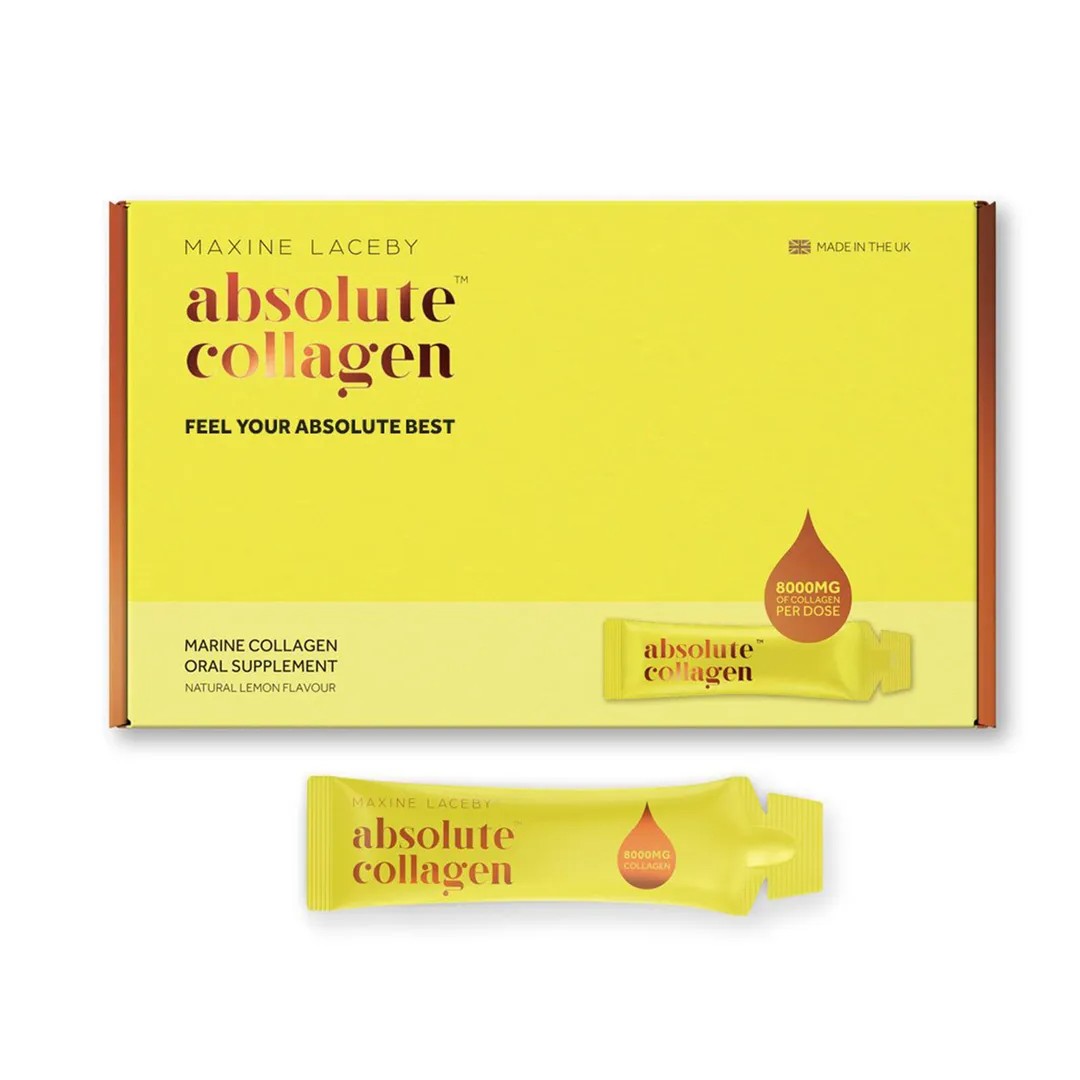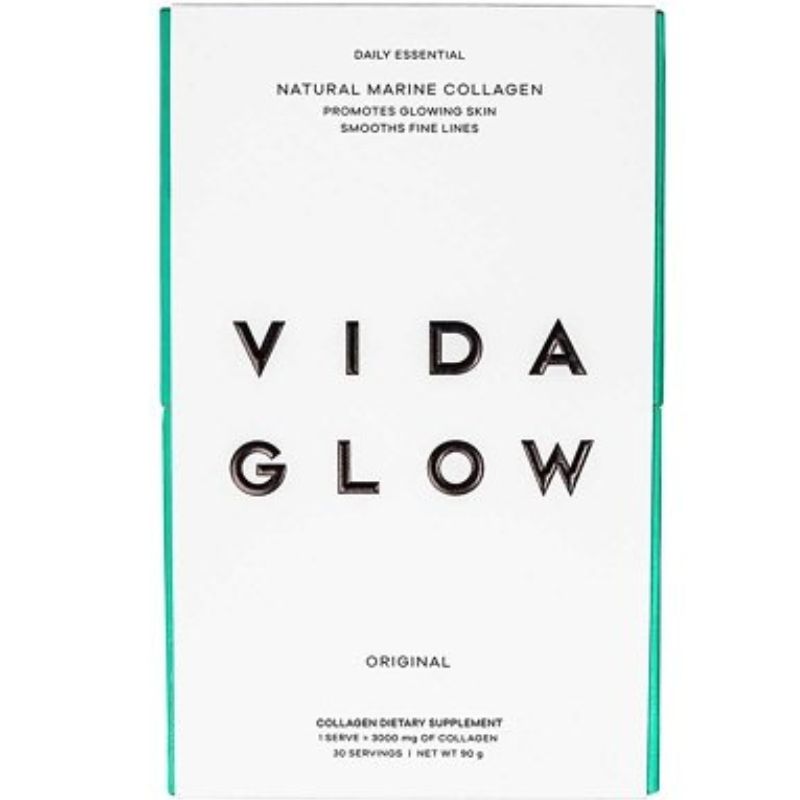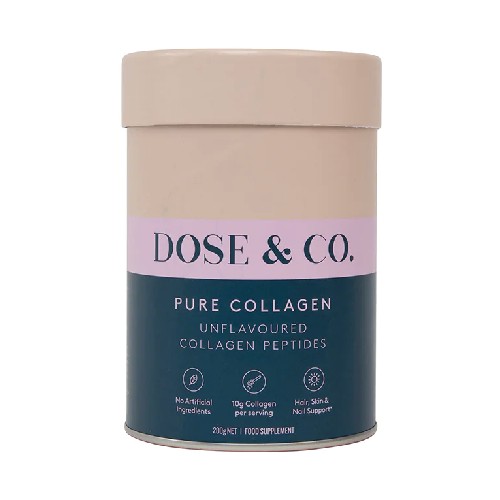Collagen masterclass: How can I tell a good supplement from a bad one? How long will it take to see results? We asked the pros...
It’s been dubbed ‘the fountain of youth’ – so where can we get collagen and do supplements really work?
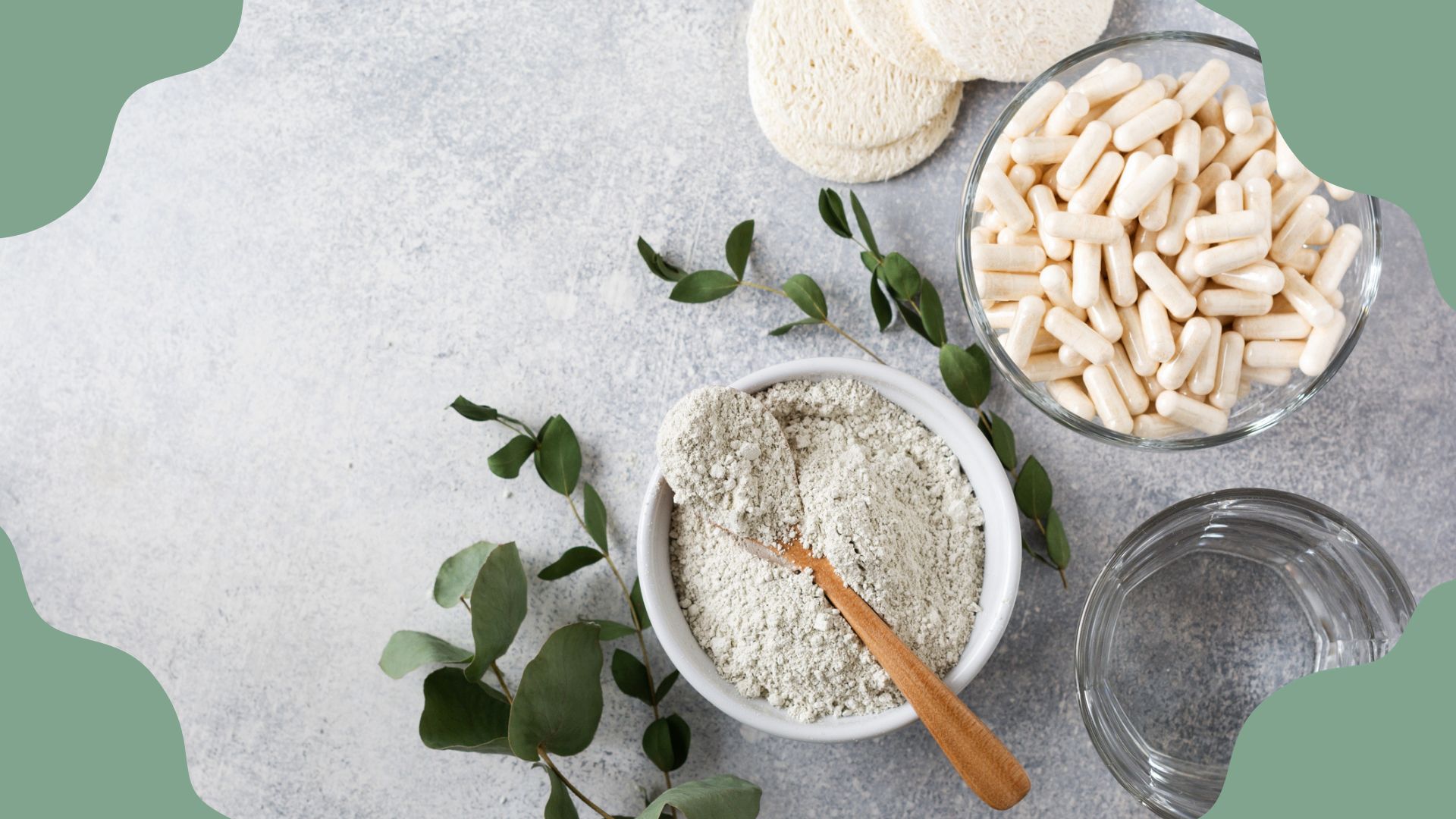

Anna Paul
Collagen is a naturally occurring protein that acts like scaffolding and cushioning in our skin, keeping it plump and bouncy.
As we age, our collagen levels drop, which leaves us with fine lines, wrinkles, and an all-round loss of firmness. Although the body naturally makes its own collagen, as we age, this production process slows down, with levels falling by approximately 1% from our mid-20s, before accelerating at around the age of 50.
Even if you know what collagen is, it can be hard to understand *how* to take it and crucially, whether or not it's even worthwhile. We sat down with some scientists and doctors to find out how to choose a supplement - and when you can expect to see results from them.
Collagen supplements 101: Everything you need to know
Can we get collagen from our diets?
"Collagen is only really found in the tendons, connective tissue, and organ meats of animals," explains Anna Lahey, founder of Vida Glow. "So it’s not all that accessible in a regular diet." It’s also not achievable if you’re vegetarian. "Even if you’re eating nose to tail, or drinking bone broths, you’re consuming collagen in its raw form, which is a very large molecule and not well absorbed by the body," she adds. This is where collagen supplements have the upper hand, as most will have been formulated to deliver collagen in smaller pieces that can be readily used by the body. Making sure you’re getting enough vitamin C in your diet will help to prevent existing collagen from breaking down and aid in the formation of new proteins. So stock up on citrus fruits and berries – foods that are high in vitamin C. Plus, they are much more pleasant to eat than bone broth.

What is the difference between various collagen supplements?
There are three key types of collagen found in supplements – bovine, marine, and vegan. It’s worth noting that "the collagen protein does not exist in plants, so the concept of 'vegan collagen' could be misleading, as it isn’t actually collagen," says Absolute Collagen’s in-house scientist Dr Dave Reilly. Of the three, marine is considered to be the best. "Studies have shown that marine-based collagen can be absorbed more efficiently than other collagen sources," says Anna. All collagen supplements will either contain collagen in its original state, which is known as unhydrolysed, or in a hydrolysed form, which is smaller and easier for the body to absorb. Investing in a good marine-based collagen supplement (or drink) is an important part of any effective menopausal skincare regime.
How can I tell a good collagen supplement from a bad one?
Confusingly, there is a difference between collagen supplements and collagen-supporting supplements. "Collagen supplements contain the specific amino acids and peptides (the building blocks of proteins) that are needed by cells in the body to produce collagen," Anna advises. "Collagen-supporting supplements use antioxidants to enhance skin health and minimise collagen degradation." Look carefully at the pack to make sure you know what you’re getting before investing. Ultimately, the best collagen supplement for you will be the one you like and remember to take. "If you’re not taking it daily then you won’t see the results you want," says Anna. "You must be consistent, so find a product that you enjoy using and that fits seamlessly into your routine." Some have a more pleasant taste than others, so we recommend trying testers first if it’s possible to do so. While you're not slathering it on your skin, a good collagen supplement should be a part of your skincare regime, so pick the form that you know you can easily incorporate into your routine.
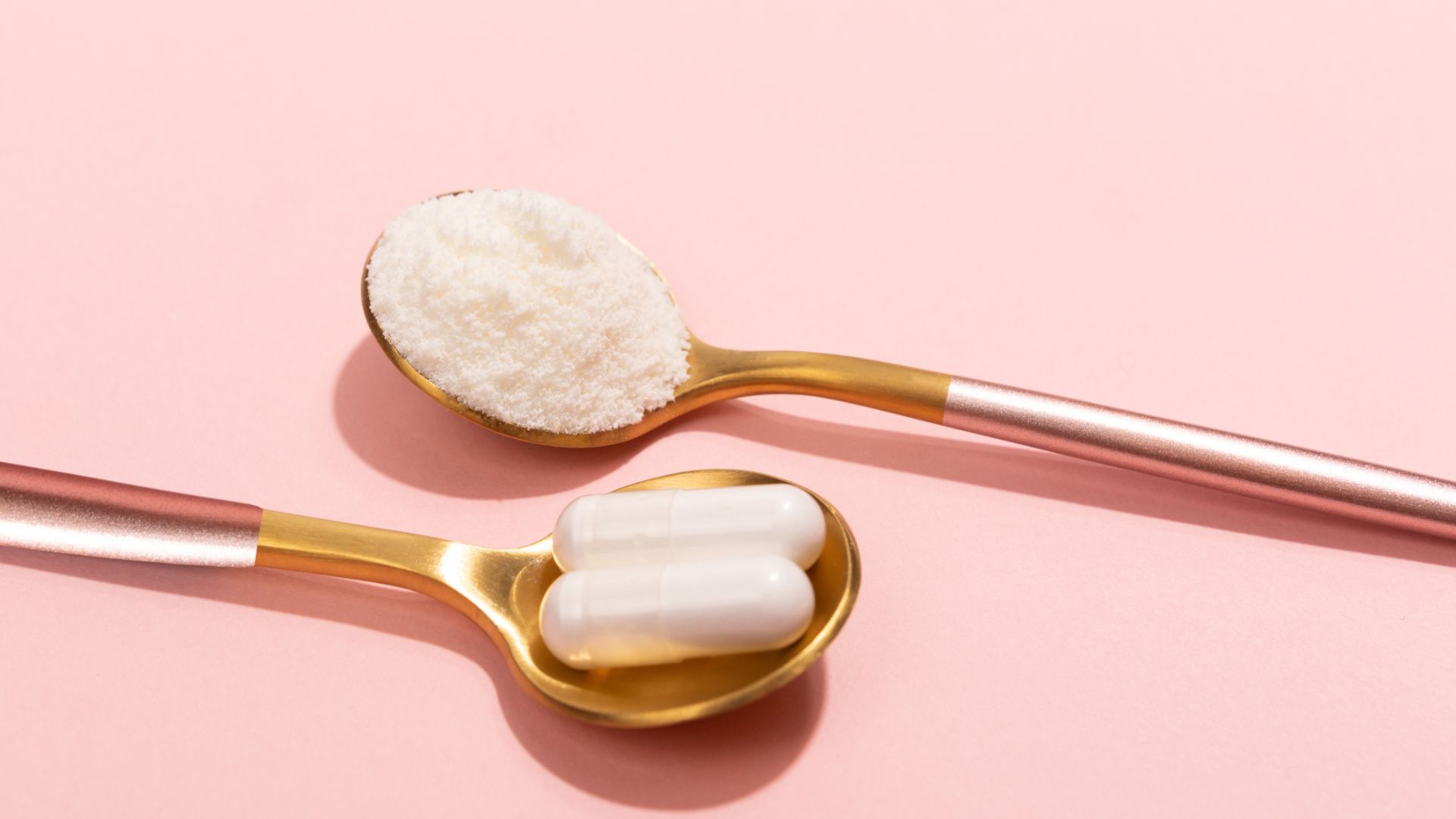
How long will it take to see results?
Patience is a virtue here, and supplements are never a quick fix. "Everyone’s collagen journey is different and results are personal," advises Dr. Reilly. "When you begin to take collagen, it will directly target the areas where you need it the most. For some people, this may lead to seeing changes in the skin first, whereas for others it may be on their hair and nails (two other areas where collagen is helpful). Typical advice is to take collagen for up to three months, which is a sufficient amount of time for you to be able to see visible changes." In addition to using supplements, consider topping up your regime with the best skincare devices - many of these have collagen-boosting properties.
Sign up to our free daily email for the latest royal and entertainment news, interesting opinion, expert advice on styling and beauty trends, and no-nonsense guides to the health and wellness questions you want answered.

While supplements are the most effective way to top up your collagen levels, the best red light therapy devices can also help top up your collagen stores. Various non-invasive treatments, like Profhilo and Ultherapy, can also help stimulate various types of collagen and enhance any supplements. Topically applied collagen can't stimulate the production of collagen, but it can be a valuable ingredient to help moisturise skin - which is why it features in many of the best face masks.
Jess Beech is an experienced fashion and beauty editor, with more than eight years experience in the publishing industry. She has written for woman&home, GoodtoKnow, Now, Woman, Woman’s Weekly, Woman’s Own and Chat, and is a former Deputy Fashion & Beauty Editor at Future PLC. A beauty obsessive, Jess has tried everything from cryotherapy to chemical peels (minus the Samantha in Sex and The City-worthy redness) and interviewed experts including Jo Malone and Trinny Woodall.
- Anna PaulFreelance editor and writer
